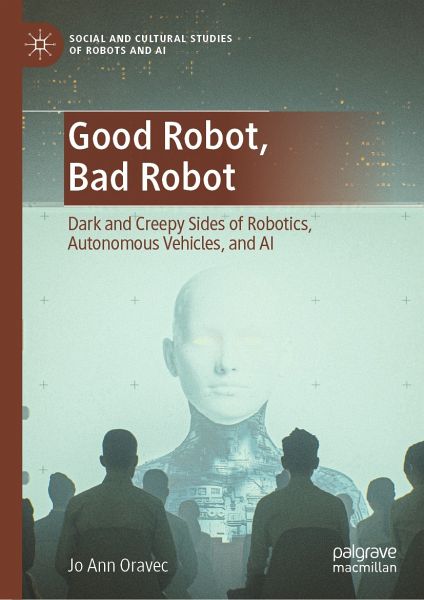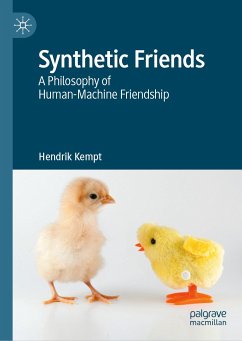
Good Robot, Bad Robot (eBook, PDF)
Dark and Creepy Sides of Robotics, Autonomous Vehicles, and AI
Versandkostenfrei!
Sofort per Download lieferbar
72,95 €
inkl. MwSt.
Weitere Ausgaben:

PAYBACK Punkte
36 °P sammeln!
This book explores how robotics and artificial intelligence (AI) can enhance human lives but also have unsettling "dark sides." It examines expanding forms of negativity and anxiety about robots, AI, and autonomous vehicles as our human environments are reengineered for intelligent military and security systems and for optimal workplace and domestic operations. It focuses on the impacts of initiatives to make robot interactions more humanlike and less creepy (as with domestic and sex robots). It analyzes the emerging resistances against these entities in the wake of omnipresent AI applications...
This book explores how robotics and artificial intelligence (AI) can enhance human lives but also have unsettling "dark sides." It examines expanding forms of negativity and anxiety about robots, AI, and autonomous vehicles as our human environments are reengineered for intelligent military and security systems and for optimal workplace and domestic operations. It focuses on the impacts of initiatives to make robot interactions more humanlike and less creepy (as with domestic and sex robots). It analyzes the emerging resistances against these entities in the wake of omnipresent AI applications (such as "killer robots" and ubiquitous surveillance). It unpacks efforts by developers to have ethical and social influences on robotics and AI, and confronts the AI hype that is designed to shield the entities from criticism. The book draws from science fiction, dramaturgical, ethical, and legal literatures as well as current research agendas of corporations. Engineers, implementers, and researchers have often encountered users' fears and aggressive actions against intelligent entities, especially in the wake of deaths of humans by robots and autonomous vehicles. The book is an invaluable resource for developers and researchers in the field, as well as curious readers who want to play proactive roles in shaping future technologies.
Dieser Download kann aus rechtlichen Gründen nur mit Rechnungsadresse in A, B, BG, CY, CZ, D, DK, EW, E, FIN, F, GR, HR, H, IRL, I, LT, L, LR, M, NL, PL, P, R, S, SLO, SK ausgeliefert werden.












